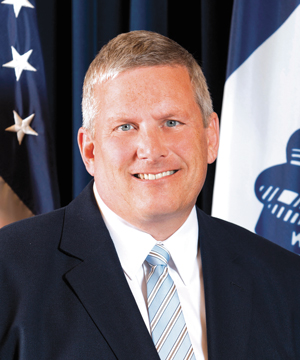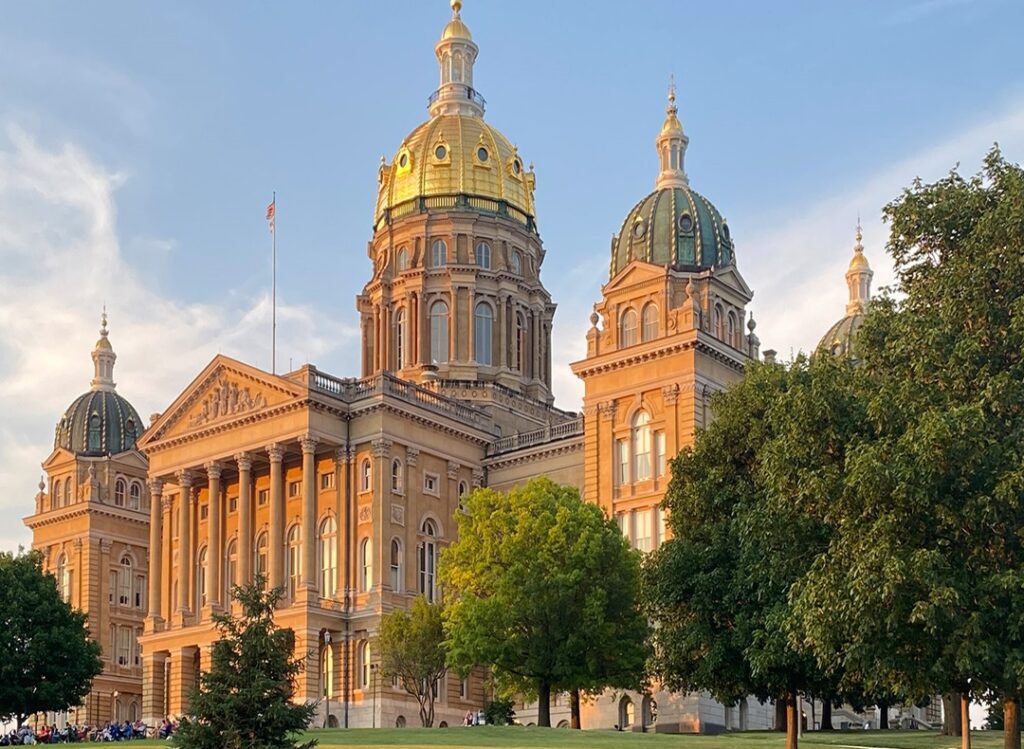A Closer Look: Bill Northey
Iowa secretary of agriculture

PERRY BEEMAN Aug 5, 2016 | 11:00 am
3 min read time
754 wordsBusiness Record Insider, Government Policy and LawSometimes an Iowa secretary of agriculture can be fairly invisible to the general public. After all, with Iowa churning along as the nation’s top producer of corn, hogs and eggs, many just figure things are good and don’t pay much attention.
But the mild-mannered Bill Northey — a popular figure on both sides of the political aisle — now is navigating a different Iowa farm scene than he saw when he was elected as secretary of agriculture in 2006. The state is locked in a nasty fight over crop chemical runoff and a related federal lawsuit filed by Des Moines Water Works. Ethanol backers aren’t getting what they want from the U.S. Environmental Protection Agency. By Northey’s own observation, many Iowans — who have been moving to town for decades — don’t even know a farmer anymore, and have become a bit disconnected from the ag scene that so permeated the state for so many years.
As Northey tries to keep the peace and eyes a run to succeed his Republican colleague Terry Branstad as governor, we asked him about some of his key work.
You have been in the middle of the discussion about Des Moines Water Works’ federal lawsuit against three northwest Iowa counties regarding nitrate pollution. What do you think ultimately will happen?
I want to continue to see the engagement by our producers out here. In our urban areas, we have cities working on the issue. I was just up to Storm Lake, and the Iowa League of Cities had 60 city managers looking at the things they are doing at Storm Lake on urban conservation. I was at a field day up at Boone, and there were 30 or 40 farmers there, and many of them hadn’t tried cover crops, and they were there learning. I just want to continue to see that engagement and growth (in people figuring out what works in their area).
Do you see yourself as playing mostly a role of promoting techniques that would reduce runoff?
That is exactly right. We were doing this before the lawsuit. We came out with the Nutrient Reduction Strategy four years ago. We aren’t a party to the lawsuit, but it certainly impacts what we do. I get asked about it a lot. Our focus is on practices and technologies and having more options for people.
U.S. Agriculture Secretary Tom Vilsack, former governor of this state, has said Iowa needs to think bigger, and he’s disappointed the Iowa Legislature didn’t pass a grand plan for more water quality spending he had hoped to partially match with federal money. Are you hopeful for a deal this next session?
Yes, I am. The governor came up with a proposal. The Iowa House had a proposal, with no tax increase. I think that is a start. There was general, good support for the type of practices that are being funded now. I don’t know what the mechanism will be, but I sense that there will be before session some good discussions about what a funding proposal will look like.
Are there changes in techniques coming?
There is a lot of talk about using technology to put on just the amount of chemicals needed. Many farmers are talking about going to four applications (spreading less chemical in each one by making more passes than in the past). One in the fall, one with the planter, an early side dress, and a late application. Now we are starting to get the tools to find out exactly how much a crop needs (at a certain time).
Are we going to see drones all over the farms?
I think we will continue to see more drone use. We will figure out which cameras are right, and how to use them to add value. I think we are always trying to figure out how to make them pay for themselves.
You have been mentioned as a candidate to replace your Republican candidate, Gov. Terry Branstad, when he retires. Have you decided whether to run?
I am seriously looking at it. I am having conversations with folks. I haven’t made a decision. It’s a big decision. I’ll make a decision in 2017.
Have you asked your wife, Cindy, about this?
We’re still having conversations: “What does it mean?” We are talking through it. We are talking with others about what it’s like. We like our life now. But I know you can make a big difference as governor if you surround yourself with good people.











